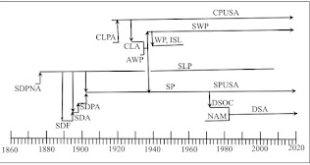[embedded content]Noam Chomsky Having A Discussion With An Idiot This is more about current events than usual with me. Patrick Bet David talks to quite a range of people. But he is incapable of listening, partly because he 'thinks' there are two sides, Democrats and Republicans, in the United States today. I stumbled on the above after listening to a discussion with David Pakman, in which Pakman responds at one point with something like, "Some of those words mirror some of what I said."...
Read More »Technology For A Model Of Extensive And Intensive Rent
Table 3: Model Parameters and Variables Parameter or VariableDescriptionnThe number of produced commodities, with n > 1.kThe number of types of land, with k > 1.mThe number of processes available for producing corn on land, with m > k.a0A row vector of labor coefficients containing n + m - 1 elements. The element a0, j; j = 1, 2, ..., n + m - 1; is the person-years of labor needed to run the th process at a unit level.AA n x (n + m - 1) matrix. The element ai,j; i = 1, 2, ..., n; j...
Read More »Victoria Chick (1936 – 2023), James Crotty (1940 – 2023), Makoto Itoh (1936 – 2023)
I cannot write as much about these economists as they deserve. INET obituary for Victoria Chick. Her book, Macroeconomics after Keynes has a pun as its title. She is writing about macroeconomics that temporally follows Keynes and macroeconomics that builds on Keynes. The two do not need to be the same. Her book is good on the different time scales in the General Theory. Taking the short run to be when fixed capital ('plant') is given is different than defining the long run by given...
Read More »Howard Zinn On 1619
[embedded content]Neighbors of Zinn Make A Movie This was a year before my mother's mother's mother's ancesters came to this continent. It is on my mother's mother's father's side I am descended from a murderer's brother. My father's ancesters were probably on this continent in 1919, but in Canada. "A black American writer, J. Saunders Redding, describes the arrival of a ship in North America in the year 1619: Sails furled, flag drooping at her rounded stern, she rode the tide...
Read More »Extensive And Intensive Rent
This post begins the presentation of an example in which extensive and intensive rent can both arise. I do not consider external intensive rent or joint production in general. Kurz and Salvadori (1995), in section 2.2 of Chapter 10, have a more general model that includes external extensive rent and joint production. It does not allow for more than one agricultural commodity, although they treat that in problems, with examples from the literature. Perhaps developing this example will help...
Read More »An Outline Of The History Of Socialist And Communist Parties In The United States
A Timeline For The United States This post provides an outline of the development of socialist and communist parties in the United States. The focus is on national political parties, not labor unions, not intentional communities, and not activist groups. The Socialist Labor Party (SLP), the Socialist Party (SP), the Communist Party of the United States of America (CPUSA), and the Socialist Workers’ Party (SWP) are the most long-lived parties considered here. Democratic Socialists of...
Read More »Luigi L. Pasinetti (1930 – 2023)
I have been inspired by Pasinetti's clear expositions. A lot of my work is an attempt to build on his theory of structural economic dynamics. Some highlights of Pasinetti's career as an economist: A derivation, in Pasinetti (1962), of the Cambridge equation, r = g/sc. Along a steady-state growth path, the rate of profit must be equal to the quotient of the rate of growth and the savings rate out of profits. This is an extension of Keynes' theory that investment creates the needed savings...
Read More »Joseph Schumpeter, Neo-Marxist; Walter Lippman, Fabian Socialist
Alfred Marshall, A. C. Pigou, John Neville Keynes, and John Maynard Keynes were also all Fabian socialists. And fascism is a kind of socialism. I learn these interesting facts from Zygmund Dobbs' book, Keynes at Harvard: Economic Deception as a Political Credo. I refer to the 1962 second edition. This book was spewed out by the Veritas Foundation, a reactionary think tank, I guess, associated with a grandson of Theodore Roosevelt. This book purports to be an examination of how colleges at...
Read More »Engels To Mehring On False Consciousness
The following is from Friedrich Engels' letter to Franz Mehring of 14 July 1893: London, 14 July 1893 Dear Mr. Mehring, It has taken me until today to get round to thank you for the Lessing-Legende you were so kind as to send me. I did not wish merely to send you a formal note acknowledging receipt of the book, but also and at the same time to say something about it - its contents. Hence the delay. Let me begin at the end - with the appendix, 'II ber den...
Read More »Martin Luther King, Jr., Was A Democratic Socialist
I was prompted to write this post by Matthew Yglesias's post from Martin Luther King Day. "[A. Philip] Randolph, of course, continued as a major leader in the struggle until his death in 1979. When I became deeply involved in the civil rights movement in the fifties and sixties, I was a conscious Randolphite, dedicated to the program of an integrated class struggle against both exploitation and racism. And when I began to work with Martin Luther King, Jr., I discovered that he, too, had...
Read More » Heterodox
Heterodox

